
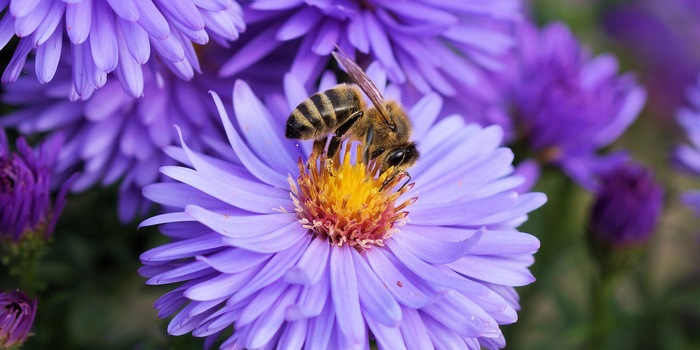
Bees, the little heroes
They live in the world's most useful monarchy, their regurgitation tastes great and they are the third most important livestock. Despite this, bees do not have it easy. Their precious living environment is being squeezed ever tighter.
Maya the bee and her friend Willi, who, it has to be said, is a bit of a simpleton, were with me throughout my childhood. Because of my brothers, I watched the film "Bee Movie: Drôle d'abeille" so many times that by the end of it, I knew almost all the lines by heart. In both cases, the protagonists have a very special mission. Maja saves her entire colony of bees with the perfect combination of adventure and loyalty. Barry from "Bee Movie" fights tirelessly for the bees and for recognition of their work. These film bees are heroes, just like the bees that buzz around us every day.
They arrive by A Mail
The "antophila" (the bee's scientific name) is found on every continent except Antarctica. Most people probably associate the word bee with the western honey bee, although there are around 20,000 different species. Some, such as western honeybees, bumblebees and stingless bees, live in colonies. Most others, particularly wild bees, live as hermits. The venomous stinger is a defensive stinger. Only females, i.e. queens and workers, have one. Males do not. Yes, as mentioned above, honey is strictly speaking the bee's regurgitation. The forager transfers the unfinished honey to the worker bee, which transforms and thickens it by ingesting and regurgitating it several times. A fun fact to finish: bees can be sent through the post with no problem.
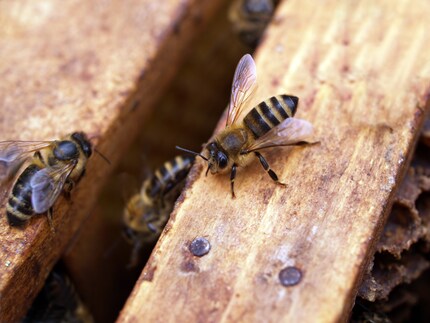
Economic performance: CHF 350 million
Bees are responsible for almost 80% of the pollination of wild and useful plants. Without them, farmers would have almost nothing to harvest and our food supply would be considerably reduced. As a result, humans would suffer more from deficiency symptoms and cardiovascular disease.
Bees also make products such as honey and wax. Of the 20,000 species, only nine produce honey. The western honey bee is one of them. A colony of bees produces around 50kg of honey and 1kg of wax per year. They work hard to do this. 350 bees work their whole lives to produce just one kilo of honey. A bee forages for more than 2,000 flowers a day.
Some researchers wanted to illustrate the usefulness of bees by calculating their economic performance. They found that 350 million Swiss francs of total agricultural output was due to bee pollination. This makes the bee the most important agricultural worker and the third most important livestock animal in Switzerland, behind cattle and pigs.
Unfortunately, like other insects, they don't have it easy.
Distressed situation
Bee colonies are under threat. We know that. But we don't really know why the number of bee colonies is plummeting. Several factors are known. The first is the Varroa mite. It was introduced by bee imports at the end of the 1970s. The small parasite feeds on the insects' blood and transmits diseases by biting them. The bees are weakened and the males even become sterile.
Another factor: monocultures. With a varied diet, bees are more robust and less susceptible to disease. Monocultures are not good for wild bees either - which, by the way, do not produce honey, but are super pollinators - but for another reason. Many of them are 'specialised' in certain plants. With fewer different plants, their food source is reduced. Farmers could combat these monocultures and help preserve bees, for example, by leaving strips of wild meadows on their fields. A 2018 study also showed that smaller fields attracted more wild bees. The reason: many smaller fields still have borders. These serve as nesting places and help bees find their way around.
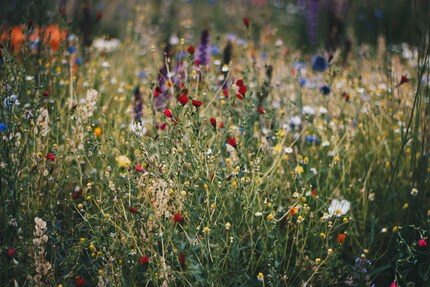
Pesticides used by farmers and private individuals are also harmful to bees. The toxins act on the bees' nervous system and disorientate them. They are then unable to find their hive. In the worst cases, the poison kills them directly. On 27 April 2018, the EU decided to ban three controversial insecticides. Neonicotinoids protect plants from pests, but are very harmful to bees. This is therefore an important step towards protecting bees, but it will not be enough to halt their decline.
What can I do?
You have - by now at the latest - become a complete fan of bees? Very good. Because now it's up to you and your green thumb. You can plant flowers, bushes and trees. But be warned, if you want to get it right, there are a couple of things to consider.
Just because your garden blooms with a thousand colours for a few weeks doesn't mean it's a bee paradise. Yellow and black insects don't feed on just any flower. So-called double flowers are varieties that do little or nothing for the bees. What's more, they have so many petals that there's no room for the pollen-producing stamens. Let's not even talk about nectar...
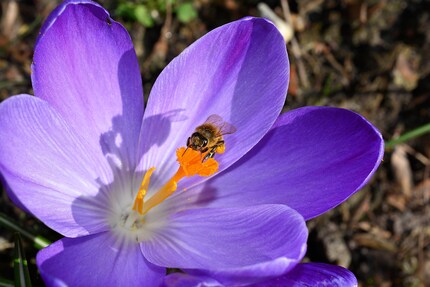
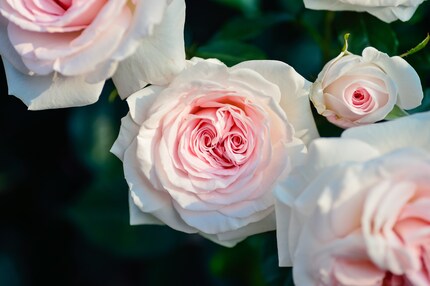
Differences are also found in flowers that are not double. Some are more appealing to bees than others. If you have a large garden, plant fruit trees such as apple or cherry trees. They play a vital role in pollen and nectar production. If you don't have much space or just a balcony, you can also do something for the bees. Do you love raspberries and blackberries? So do domestic and wild bees. You can also quietly plant ivy, crocuses and coriander. If you don't like meticulously tended English grass, let dandelions and clovers multiply in your garden.
To ensure that bees don't overfill their stomachs for two months and then cry famine, it's important to pay attention to flowering times. Arrange your plants so that something is always blooming in your garden from spring to autumn. Early bloomers include crocuses and peonies. Then come raspberries, blackberries, bluebells and bluegrass. In autumn, ivy, dahlias and autumn crocuses provide food for bees. But remember: if you want your efforts to pay off, you must always think carefully about the location of your bee paradise. So no sun-loving plants in the shade and vice versa.
Want to take action? We've got what it takes.
My life in a nutshell? On a quest to broaden my horizon. I love discovering and learning new skills and I see a chance to experience something new in everything – be it travelling, reading, cooking, movies or DIY.
Interesting facts about products, behind-the-scenes looks at manufacturers and deep-dives on interesting people.
Show all
